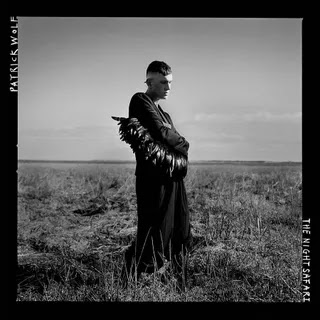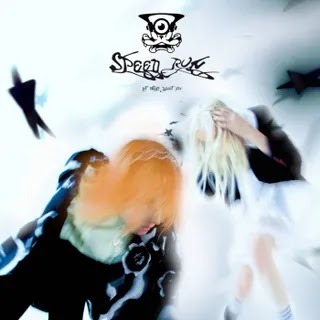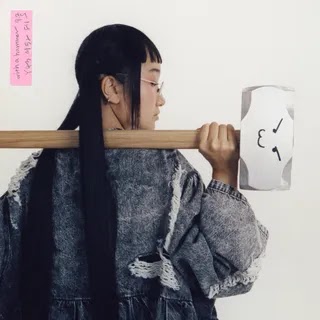Yaeji’s first full-length mixtape is a subtle, more insular turn for the producer. It plays like a self-issued challenge to strip away the fluorescence, to find what’s underneath pop catharsis.
To grow up in the Asian-American experience and still become an artist is an act of rebellion; it’s a demand to tell your own story despite society deeming you interchangeable and voiceless. It’s a dismissal of the “model minority” stereotype—a patronizing label conferred upon your people for your supposed diligence and submission—and a refusal to reckon with that reduction. To be an Asian American artist also requires an inherent concession: You know that even if you attempt to address the universals in the human experience, your face will always be part of the discussion. Yaeji, a bilingual Korean American producer living in Brooklyn, could not have known that her first full-length mixtape would be released into explosive social frictions, a spate of violence against Asian Americans that would prove the “model” myth a hollow gesture. And yet her music arrives as an openhearted counterpoint, making space for both anxiety and love, offering a timely reminder of the power in subverting expectations of others and appreciating community—the kind you’re born into and the kind you built yourself.
In her short, already thrilling career as a producer, singer, and rapper, Yaeji has toyed with ideas of communication and opacity: She initially sang in Korean instead of English to obscure her lyrics, and still plays the languages like instruments with different timbres and intonations. Her warm, sparkling beats usually nod to deep house, though she often adds a glaze of icy trap languor; when she covered pop hits by Drake and Robyn, she tempered the mania with misty distortion and falsetto chirps. Across her two EPs for Godmode records, Yaeji’s songs were effortlessly chill yet reliably euphoric. Her bass drops and feathery vocals have had such nimble balance and satisfying velocity, they’ve felt purifying as only the best dance music can: between “raingurl,” “drink i’m sippin on,” and that humid cover of “passionfruit,” her 2017 EP2 remains a stalwart DJ cheat code. Even teetotalers know: Any night out is instantly more seductive upon hearing Yaeji murmur, “Mother Russia in my cup.”
For What We Drew, Yaeji’s first release on the venerable UK label XL, the 26-year-old producer could have easily shipped out a full crate of stylish, bacchanal floor-fillers without breaking a sweat. Instead, What We Drew plays like a self-issued challenge to strip away the fluorescence, to find what’s underneath pop catharsis. As a result, it’s subtler yet more resonant, because its peaks have deeper valleys to climb back from; in the tradition of Frankie Knuckles, Sylvester, and other artists who used bright electronic music as conduits of pain, here Yaeji offers smaller, darker meditations on the paralysis of anxiety and the loneliness inside the revelry.
“Waking Up Down,” the tape’s first single, is the soft landing from Yaeji’s past. In a sleight-of-hand, it deploys several Yaeji staples immediately: a rippling, entrancing synth intro; a quick and satiating bass drop; lyrics so laid-back they slouch. But there is friction, too: As she flatly sings an index of minor daily achievements—“I got waking up down/I got cooking down/I got making a list and checking down”—her production feels crooked. Her voice clashes with the synths in dissonant patches; the drums feel pushy, the bass skittish. Soon the chorus, in Korean, confesses how much is truly awry: “It’s not easy/There’s no such thing as easy/If I’m lazy/They all say it’s my fault,” she sings more somberly. Her earlier feats weren’t brags so much as self-affirmations of her ability to function, and that insistently repeated “down” is a plaintive suggestion of where she’s been. Unlike Yaeji’s singles past, it languishes in this unease; the momentum builds but never crests, instead skittering to a halt with nervous, spotlit drums, channeling the lack of resolution in the low, daily thrum of worry.
The satisfying gloss of “Waking Up Down” makes it one of the heftiest dance tracks on What We Drew; elsewhere, Yaeji is even more insular. “In the Mirror” is a clubber’s lament amid the sea of bodies, accepted but alone; by the chorus, she sounds like she’s one tipple shy of following Sia aboard a chandelier. “Why doesn’t it feel the same when I’m in the air/When I look in the mirror/When I’m not a pair?” she sings dazedly over synths that seep outward like black puddles. “When I Grow Up” sounds like a K-pop anthem after a weekend in a Bushwick gutter; its pared-back, chipper synth beat stutters and feints as Yaeji sings in multiple guises—rapid chattering, wide-eyed lilt—about how she’s been “forgotten” and “exposed to the ones that shouldn’t know.”
Elsewhere, What We Drew has a diffused energy befitting of a mixtape—or outtakes, depending on your appetite for circuitous performance art and surreal posse cuts. “The Th1ng” is the former, a meandering spoken-word piece by the London artist Victoria Sin, with a glassy garage beat that nods greatly to FKA twigs’ “Glass & Patron.” “Free Interlude” is the latter and, despite the title, a full-length spasm of a track—a riff on jealousy and neuroses with blips of made-up, Seussian slang. Riding a stormy trap beat, Yaeji has never sounded so afield from pop-house, her voice wrung through processors into a thin, metallic wisp. “My envy/Ripping and biting/Try me and try me,” she raps in Korean, before admitting, “My life is in a weird place.” A series of equally distorted rappers—Lil Fayo, trenchcoat, and Sweet Pea—swoop in like Dadaist motivational speakers: The most insistent, Sweet Pea, proclaims, “I like pink/I like purple/You’re a Shirple.”
Some of her friends’ cameos are more elevating, though—and sincerely uplifting. “Money Can’t Buy,” with the rising Bay Area rapper Nappy Nina, is as satisfying as the quiet pleasures it extols: As Yaeji drawls in Korean, all she wants to do is “eat rice and soup” and then, secondly, “be friends with you,” as a rubbery, strutting beat cuts the cuteness with pure ego. On “Spell,” the Tokyo DJ/producer YonYon sings sweetly in Japanese of “you and I, the magic that binds us,” over a house beat that buzzes and flickers like streetlamps before dawn; Yaeji’s tone is brisker but no less awed as she revels in her life of performance, in being embraced in her purest form: “As if I cast a spell/I read out loud my diary/In front of people,” she marvels.
But while What We Drew is more internalized than past releases, it is not conflicted; rather, Yaeji finds clarity in vulnerability, in the pendulum swing of her humanity. Crucially, the mixtape doesn’t turn its back on one of Yaeji’s strongest traits as an artist: Her music has always been deeply social, and now it is more gregarious than ever in its gratitude for those around her. Some of the best tracks are valentines to the friends and artists who fill Yaeji’s world—and she has been proactive building scenes, from New York to Seoul—and her appreciation for this community feels all the sweeter balanced with her revelations of struggle. Throughout What We Drew, it is a thrill to hear Yaeji sound so proud and connected to the artistic company she keeps and to the heritage that gives her singing even more eloquence. It is sobering to know her struggles, to hear her persevere through them; hearing her shun easier paths, insistent on sharing her complicated truth, makes the party all the better when it arrives. Through the dark, Yaeji reminds us that our narratives are ours alone.
👉👇You May Also Like👇👌
View the original article here



%20Music%20Album%20Reviews.webp)












0 comments:
Post a Comment